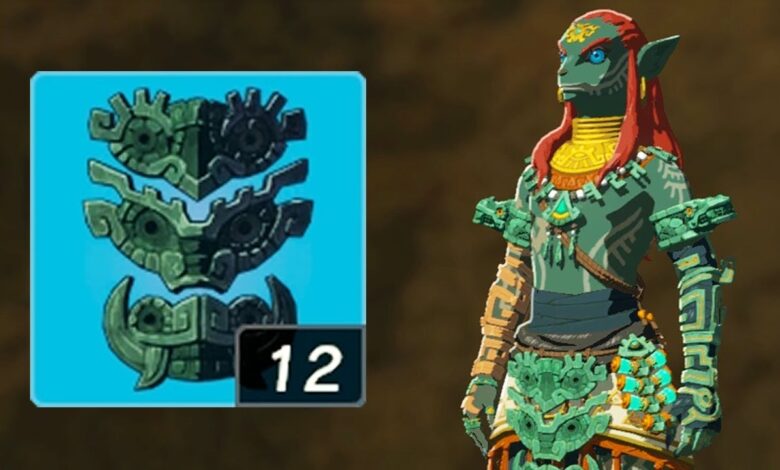Ancient Hero’s Aspect: Key Traits That Define the Legends of Old

Throughout history, ancient heroes have been immortalized in mythologies and legends, their stories captivating generations and influencing countless aspects of culture. These heroes represent the ideals of strength, bravery, and wisdom, often standing as paragons of virtue. The concept of the “ancient hero’s aspect” refers to the qualities and traits that make these figures legendary, ensuring their stories are passed down through centuries. In this article, we will explore the defining aspects of ancient heroes, from their origins and key traits to their enduring impact on modern society.
The Concept of an Ancient Hero: What Defines Them?
The concept of a hero has been central to every civilization, and ancient heroes serve as the archetype for what it means to be extraordinary. From Greek myths to Norse sagas, heroes were often individuals who exhibited extraordinary feats of strength, intelligence, or bravery. They weren’t just warriors; they were symbols of the virtues their societies valued most—honor, loyalty, and courage. Ancient heroes, such as Achilles or Hercules, were often born under exceptional circumstances, chosen by the gods, or given a divine task that shaped their destiny.
A key aspect of these heroes is their physical prowess. Most heroes were depicted as larger-than-life figures, possessing supernatural strength or the ability to overcome insurmountable odds. For example, Hercules’ twelve labors showcased his immense strength, while Odysseus’s journey illustrated his wit and perseverance. However, their greatness was also marked by moral virtues—heroes like King Arthur and Theseus embodied justice and integrity, leading not just through strength, but through wisdom and ethical conduct.
In addition to their extraordinary abilities, ancient heroes often stood as protectors or leaders of their people. They were champions who fought against evil forces, whether in the form of mythical creatures or hostile armies. They were the glue that held their communities together, and their tales often emphasized the importance of duty and sacrifice. These figures symbolized what their cultures aspired to achieve, creating timeless ideals that continue to resonate today.
Mythological Heroes: From Gods to Mortals
Ancient heroes often bridged the gap between the mortal world and the divine, and this connection to gods and supernatural forces played a significant role in their stories. In Greek mythology, many heroes were either born from gods or had direct interactions with them, which emphasized their extraordinary nature. Hercules, for instance, was the son of Zeus and a mortal woman, which made him a demi-god—imbued with both human and divine traits. This divine connection elevated him beyond ordinary human limitations, granting him the strength to complete impossible tasks.
Similarly, in Norse mythology, heroes such as Thor and Odin were gods themselves, embodying not only immense strength but also wisdom and leadership. Thor, with his hammer Mjölnir, symbolized the raw power of nature and the warrior spirit, while Odin, the all-father, was revered for his wisdom, obtained through sacrifice. In these stories, the gods not only influenced the world but also interacted with heroes in meaningful ways, guiding them on their quests and often challenging them to grow.
Beyond the Greek and Norse traditions, ancient Egyptian mythology also had heroes who were closely connected to divine forces. Figures like Osiris and Horus were central to Egyptian beliefs about life, death, and rebirth, serving as models of virtue and justice. These mythological heroes often demonstrated resilience in the face of adversity, reflecting the values that were cherished in these ancient societies. The gods’ involvement in the lives of these heroes created an enduring connection between human efforts and divine purpose, shaping their paths and immortalizing their names in myth.
Ancient Heroes Across Cultures: Common Themes and Unique Traits
One of the most fascinating aspects of ancient heroes is their common traits across different cultures, despite the geographical and historical differences. While the stories vary, themes such as courage, sacrifice, and wisdom are universally present. In almost every culture, heroes were expected to rise above ordinary people and perform extraordinary feats. Whether it was Hercules completing his twelve labors or King Arthur defending his kingdom, these heroes were embodiments of strength and moral integrity.
However, the portrayal of these heroes was not always identical. For instance, in some cultures, heroes were depicted as tragic figures who, despite their great deeds, suffered a downfall due to personal flaws. Achilles, for example, was a hero whose anger and pride led to his death. This tragic flaw made heroes more relatable to audiences, showing that even the greatest among us are vulnerable. Similarly, in the Norse traditions, heroes like Sigurd were marked by their courage but often faced tragic fates due to betrayal or unavoidable destiny.
There were also notable female heroes in ancient mythologies. Women like Atalanta, a fierce huntress in Greek mythology, and the warrior queen Boudica of the Celts, defied the traditional gender roles of their societies. Their bravery, combat skills, and leadership qualities earned them a place in history, proving that heroism wasn’t exclusive to men. The legacy of these female figures challenges the typical narrative of ancient heroes and serves as a reminder of the diverse ways in which heroism was defined across cultures.
The Enduring Legacy of Ancient Heroes: Influence on Modern Society
The legacy of ancient heroes has not faded with time; instead, it has influenced countless aspects of modern culture. From literature and film to leadership and philosophy, the stories of ancient heroes continue to inspire and shape the world. One of the most prominent examples of this is the modern superhero genre. Characters like Superman, Wonder Woman, and Thor echo the traits of their ancient counterparts. These heroes, much like their mythological ancestors, possess extraordinary powers, face insurmountable odds, and ultimately fight for the greater good.
Moreover, the philosophical lessons embedded in the tales of ancient heroes continue to be relevant today. Heroes like Odysseus taught the value of perseverance and cunning, while figures like King Arthur represented the ideal of just leadership. These lessons transcend time and culture, encouraging individuals to face adversity with courage, wisdom, and integrity.
Modern leaders, whether in business or politics, often draw from the archetype of the ancient hero to guide their actions. The idea of leading by example, sacrificing personal gain for the greater good, and standing up for justice are principles that have been shaped by the heroic figures of the past. Ancient heroes provide timeless models of leadership, illustrating the importance of moral character in the face of power.
Conclusion
Ancient heroes are more than just legendary figures—they are symbols of the ideals and virtues that define humanity. Their stories have shaped cultures, influenced art, and provided timeless lessons in leadership, courage, and morality. Whether gods or mortals, their feats of strength, wisdom, and sacrifice continue to resonate with us today, reminding us of the qualities that make a hero truly remarkable. The aspects of these ancient heroes are not just relics of the past but enduring inspirations for modern society. As we face our own challenges, we can look to these heroes for guidance and strength, knowing that the values they represent are as relevant now as they were thousands of years ago.



